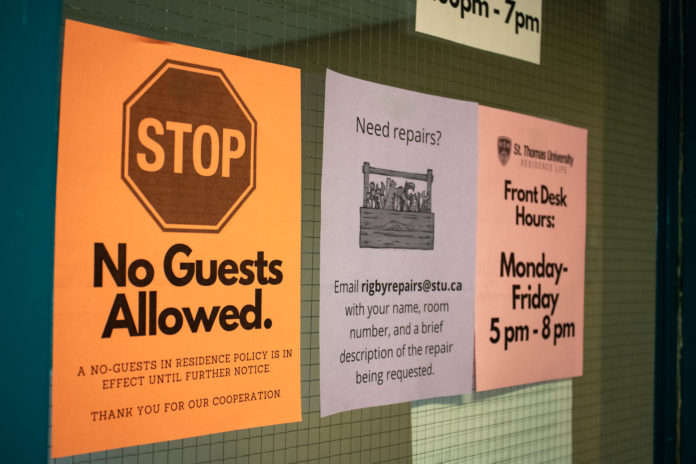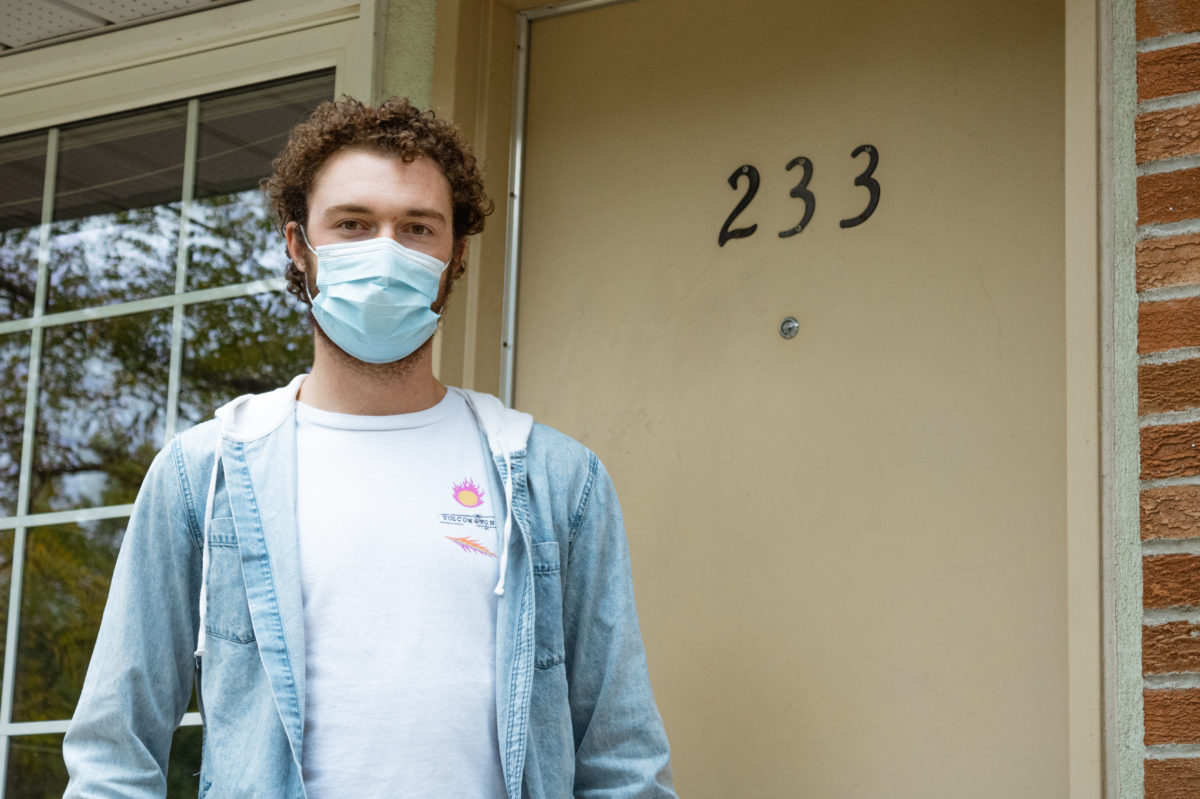

With new rules and regulations in place for university residences, St. Thomas University mental health coordinator Kelly Humber Kelly said students may feel isolated.
“When you’re living alone and you don’t have that same kind of connection [with] roommates, friends, [or] peers, then of course, for a lot of people, that will feel a lot lonelier,” said Humber Kelly.
STU residents in Rigby Hall have to follow a list of regulations put in place to keep residents safe and prevent the spread of COVID-19. Residents are not allowed to invite or have any family, friends, fellow STU students or fellow residents of Rigby in their room.
Second-year St. Thomas University student Adam McDougall noticed the difference in residence right from the beginning.
“Last year there was a lot of fanfare, there were a lot of people everywhere, there was a big energy to the whole campus,” McDougall said.
“Whereas this year, it was kinda just show up and then get right into your room.”

McDougall said restricted meal hall hours coupled with no visitors wears on you.
He said meeting fellow residents is hard because of the no visitors rule, but he’s lucky to have some established friend groups from his first year at STU.
“For first-years coming here, I think they would feel isolated, based on the rules, like no visitors or [how] you can’t really go into any common areas to hang out,” said McDougall.
But some students find the new rules to be beneficial.
Third-year University of New Brunswick student, Sydney Foster, said the guidelines create a better work environment. The medicinal chemistry major is currently living in Elizabeth Parr Jones residence at UNB where they follow similar protocols.
She said the rules help with her study habits because there’s less noise from other residents and guests.
“Having a permanent guest ban ensures I always have a quiet place to study,” said Foster.
Still, she said she misses studying and doing schoolwork around people in her program.
Humber Kelly said even though residence rules are in accordance with government regulations, the rules will likely still be tough on residents.


Humber Kelly said STU Mental Health has new re-formatted programs in the works but nothing is finalized.
According to Humber Kelly, STU Mental Health is working on reviving dog therapy in a safe, COVID-19-approved environment, as well as creating new activities such as virtual group counselling for social anxiety and loneliness.
McDougall said STU residence life worked well in creating a new and safe residence environment, but said more could be done to ensure the health and happiness of their residents.
McDougall said he goes to campus to work with friends or goes to his friend’s house to fight the isolation of residence.
“I think that [STU] can probably do a bit better trying to encourage socialization between residents,” McDougall said.
“Even something like having a common area with assigned places where you can socially distance would be a great way for people to meet [others.]”
